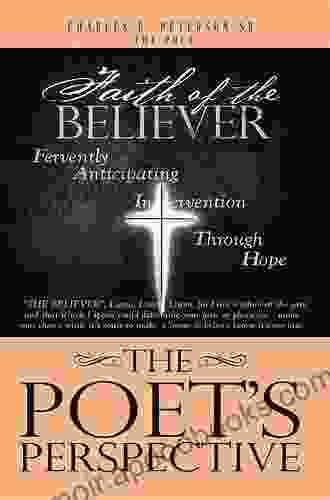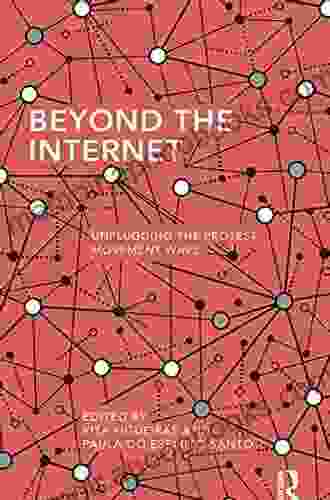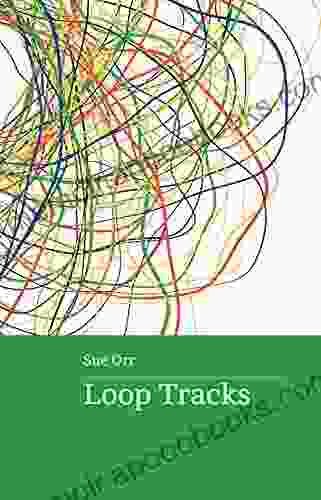Unplugging the Protest Movement Wave: Rethinking Strategies in an Era of Digital Activism

The rise of digital technology has profoundly impacted all aspects of our lives, and social movements are no exception. In the past decade, we have witnessed a surge in digital activism, as people around the world use social media, online platforms, and mobile devices to organize, mobilize, and amplify their voices.
4.7 out of 5
| Language | : | English |
| File size | : | 1414 KB |
| Text-to-Speech | : | Enabled |
| Screen Reader | : | Supported |
| Enhanced typesetting | : | Enabled |
| Word Wise | : | Enabled |
| Print length | : | 161 pages |
| Lending | : | Enabled |
This digital transformation has created both opportunities and challenges for protest movements. On the one hand, digital tools can help activists reach a wider audience, build stronger networks, and coordinate their actions more effectively. On the other hand, digital activism can also be vulnerable to surveillance, manipulation, and the creation of filter bubbles.
In this book, we examine the impact of digital technology on protest movements, providing a nuanced understanding of the opportunities and challenges presented by this transformative force. Drawing on extensive research and case studies, we explore how digital activism can enhance mobilization, organization, and public engagement, while also highlighting potential pitfalls.
Digital Activism: Opportunities and Challenges
Digital technology has created a number of new opportunities for protest movements. Social media platforms, such as Facebook and Twitter, allow activists to reach a wider audience and build stronger networks. Online organizing tools, such as Meetup and Eventbrite, make it easier for activists to coordinate their actions and mobilize support. And mobile devices, such as smartphones and tablets, allow activists to stay connected and informed on the go.
These digital tools can be particularly effective for movements that are marginalized or face repression. For example, social media has been used to organize protests in authoritarian countries, where traditional forms of organizing are often difficult or impossible. And mobile devices have been used to document human rights abuses and police brutality, providing irrefutable evidence of state violence.
However, digital activism also presents a number of challenges. One of the most significant challenges is surveillance. Governments and corporations are increasingly using digital technologies to track and monitor our online activity. This can have a chilling effect on dissent, as activists may be reluctant to speak out if they fear being targeted or harassed.
Another challenge is manipulation. Political actors are increasingly using digital technologies to spread misinformation and propaganda. This can be particularly effective in online environments, where it is difficult to verify the accuracy of information. And it can be used to sow discord and division within protest movements.
Finally, digital activism can also lead to the creation of filter bubbles. Filter bubbles are online environments that are tailored to our individual preferences and biases. This can lead to a situation where we are only exposed to information that confirms our existing beliefs and values. And it can make it difficult for us to engage in meaningful dialogue with people who have different perspectives.
Rethinking Strategies in an Era of Digital Activism
The rise of digital activism has forced protest movements to rethink their strategies. In the past, movements relied heavily on traditional forms of organizing, such as face-to-face meetings, rallies, and demonstrations. However, digital technology has created new possibilities for mobilization and organization.
One of the most important challenges for protest movements is to find ways to use digital tools to reach a wider audience and build stronger networks. Social media platforms can be particularly effective for this purpose, as they allow activists to connect with people who share their interests and values.
Another challenge for protest movements is to find ways to use digital tools to coordinate their actions and mobilize support. Online organizing tools, such as Meetup and Eventbrite, can be particularly helpful for this purpose, as they allow activists to plan events, track RSVPs, and send out reminders.
Finally, protest movements need to find ways to address the challenges of surveillance, manipulation, and filter bubbles. One way to do this is to educate activists about these risks and to develop strategies to mitigate them. For example, activists should use strong passwords and two-factor authentication to protect their accounts from being hacked. And they should be aware of the dangers of spreading misinformation and propaganda, and should take steps to verify the accuracy of information before sharing it.
The rise of digital technology has profoundly impacted protest movements. Digital tools can create new opportunities for mobilization, organization, and public engagement. However, digital activism also presents a number of challenges, such as surveillance, manipulation, and the creation of filter bubbles.
Protest movements need to find ways to use digital tools to their advantage while also addressing the challenges that these tools present. By ng so, movements can harness the power of digital technology to create a more just and equitable world.
4.7 out of 5
| Language | : | English |
| File size | : | 1414 KB |
| Text-to-Speech | : | Enabled |
| Screen Reader | : | Supported |
| Enhanced typesetting | : | Enabled |
| Word Wise | : | Enabled |
| Print length | : | 161 pages |
| Lending | : | Enabled |
Do you want to contribute by writing guest posts on this blog?
Please contact us and send us a resume of previous articles that you have written.
 Book
Book Novel
Novel Page
Page Chapter
Chapter Text
Text Story
Story Genre
Genre Reader
Reader Library
Library Paperback
Paperback E-book
E-book Magazine
Magazine Newspaper
Newspaper Paragraph
Paragraph Sentence
Sentence Bookmark
Bookmark Shelf
Shelf Glossary
Glossary Bibliography
Bibliography Foreword
Foreword Preface
Preface Synopsis
Synopsis Annotation
Annotation Footnote
Footnote Manuscript
Manuscript Scroll
Scroll Codex
Codex Tome
Tome Bestseller
Bestseller Classics
Classics Library card
Library card Narrative
Narrative Biography
Biography Autobiography
Autobiography Memoir
Memoir Reference
Reference Encyclopedia
Encyclopedia Dawn Peters
Dawn Peters Ai Jen Poo
Ai Jen Poo Ernie Ward
Ernie Ward Paul Lester
Paul Lester R Louise Nelson
R Louise Nelson Ahmed El Safi
Ahmed El Safi Paul Kenyon
Paul Kenyon Rainer Maria Rilke
Rainer Maria Rilke Agatha Christie
Agatha Christie Sandra B Tooze
Sandra B Tooze Martha Caldwell
Martha Caldwell Gloria Evans
Gloria Evans Sean Boyne
Sean Boyne Book Lover S Companion
Book Lover S Companion Stephani L Stephens
Stephani L Stephens Dan Bouk
Dan Bouk Jan Nussbaum
Jan Nussbaum Lynn M Sargeant
Lynn M Sargeant Pete Hamill
Pete Hamill Benjamin Corman
Benjamin Corman
Light bulbAdvertise smarter! Our strategic ad space ensures maximum exposure. Reserve your spot today!
 John GreenFollow ·13.2k
John GreenFollow ·13.2k Jake PowellFollow ·6.3k
Jake PowellFollow ·6.3k Albert CamusFollow ·2.7k
Albert CamusFollow ·2.7k Hector BlairFollow ·18.9k
Hector BlairFollow ·18.9k Francisco CoxFollow ·10.1k
Francisco CoxFollow ·10.1k Manuel ButlerFollow ·7.6k
Manuel ButlerFollow ·7.6k Vernon BlairFollow ·3.9k
Vernon BlairFollow ·3.9k Isaac BellFollow ·15.4k
Isaac BellFollow ·15.4k

 Jamie Bell
Jamie BellUnlock Your Mind with "Ever Wonder Why And Other...
Prepare to...

 Robert Frost
Robert Frost30 Day Betting Challenge: Transform Your Betting Habits...
Are you tired of...

 Derrick Hughes
Derrick HughesWhat Is Victory In War? Unraveling the Enigma of Triumph
The Illusion...

 Jesse Bell
Jesse BellThe Shooters: A Gripping Presidential Agent Novel That...
Enter the Shadowy World of...

 Ernest Hemingway
Ernest HemingwayUnlocking the Theological Depths of Paul Claudel: An...
Prepare to embark on an...
4.7 out of 5
| Language | : | English |
| File size | : | 1414 KB |
| Text-to-Speech | : | Enabled |
| Screen Reader | : | Supported |
| Enhanced typesetting | : | Enabled |
| Word Wise | : | Enabled |
| Print length | : | 161 pages |
| Lending | : | Enabled |













